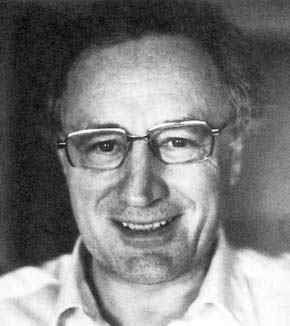A while ago I was watching an [interview with Juergen Schmidhuber](https://youtube.com/clip/UgkxuAXxsLv4isihrSwEapM6gFLHZ4ovnPGA) on Machine Learning Street Talk and he mentioned a physical limit on computation called Bremermann's limit. I was intrigued and had to learn more.
The laws of physics give us insight into the maximum amount of computation that can be done in a kilogram of mass. Combining general relativity and quantum mechanics, Hans-Joachim Bremermann derived a limit on this maximum rate of computation in the paper [Quantum Noise and Information](https://projecteuclid.org/ebooks/berkeley-symposium-on-mathematical-statistics-and-probability/Proceedings-of-the-Fifth-Berkeley-Symposium-on-Mathematical-Statistics-and/chapter/Quantum-noise-and-information/bsmsp/1200513783) .
Bremermann's limit is given by:
$$
B = \frac{c^2}{h} = 1.3563925 × 10^{50}
$$
Where $c$ is the speed of light ($3 * 10^8$ m/s) and $h$ is Planck's constant ($6.626 * 10^{-34}$ Js). Bremermann's limit $B$ is expressed as "bits per second per kilogram."
Makes sense, right? 😵💫 Imagine a channel that has to transmit a bit of information (i.e., 0 or 1) as fast as possible. We'll explore why $c^2$ and $h$ are relevant for determining the limits of transmitting this bit.
### $c^2$
Einstein famously stated that nothing can travel faster than the speed of light ($c$) and was very stubborn about it. This allowed him to make great breakthroughs in physics. The speed of light $c$ is a fundamental constant in relativity theory. Naturally, transmission of information will also be limited to $c$. $c^2$ is used for dimensional consistency. The energy of a system is described by the famous equation $E = mc^2$. In the context of information transmission we can interpret $mc^2$ as the capacity of a channel.
### $h$
In quantum physics, signals are discrete (i.e. quantized). Planck's constant $h$ is fundamental in quantum physics and relates the energy of a photon to its frequency. A quantum wave is quantized such that the energy is equal to $h$ times the wave frequency. At least one quantum of signal is required to transmit a bit, because we have to perform what in quantum physics is called a "measurement". [Heisenberg Uncertainty Principle](https://en.wikipedia.org/wiki/Uncertainty_principle), which states that in a quantum system position and momentum cannot both be measured with arbitrary accuracy at the same time, puts limitations on how fast we can perform a measurement. According to Bremermann, a consequence of the Heisenberg Uncertainty Principle is that measuring the energy of a quantum system with accuracy $\Delta E$ is constrained by:
$$
\Delta E \geq \frac{h}{\Delta t}
$$
where $\Delta t$ denotes the time it takes to make the measurement.
[David Bohm and Yakir Aharonov](https://web.archive.org/web/20140109081758/http://148.216.10.84/archivoshistoricosMQ/ModernaHist/Aharonov%20a.pdf) have shown that for some quantum systems, measurement can take an arbitrarily short time ($\Delta t \approx 0$), which would potentially allow for a higher computational limit than Bremermann suggests. However, our goal here is to understand Bremermann's limit so let's continue with the assumption that $\Delta E \geq \frac{h}{\Delta t}$. In that case $h$ can be interpreted as the minimal energy allotted to a channel.
### $B$
From our earlier sections we concluded that the total capacity of an information channel is $m c^2$ and the minimal energy that we have to allot to a channel is $h$. Therefore, the maximum amount of information that can be transmitted per second is $\frac{mc^2}{h}$. Per kilogram of mass this becomes $\frac{c^2}{h}$.
### Conclusion
Bremermann's limit offers a description of how fast we can potentially make computers using our current knowledge of physics. Current state-of-the-art supercomputers only run at a fraction of Bremermann's limit, so many advances have to be made to even come close to this limit. Also, only massless particles, like photons, can travel at the speed of light. With objects that have mass it's debatable that Bremermann's limit can ever be reached. Bremermann's limit implicitly assumes a quantum system with extreme energy efficiency.
To close, a fun quote from Bremermann on his theory that is a testament to his humility and scientific integrity:
"*It is dependent, of course, upon the validity of quantum mechanics, which, as physical theories in general, is subject to modification if empirical evidence contradicting the theory should be found.*"
 Bremermann's limit
Bremermann's limit 